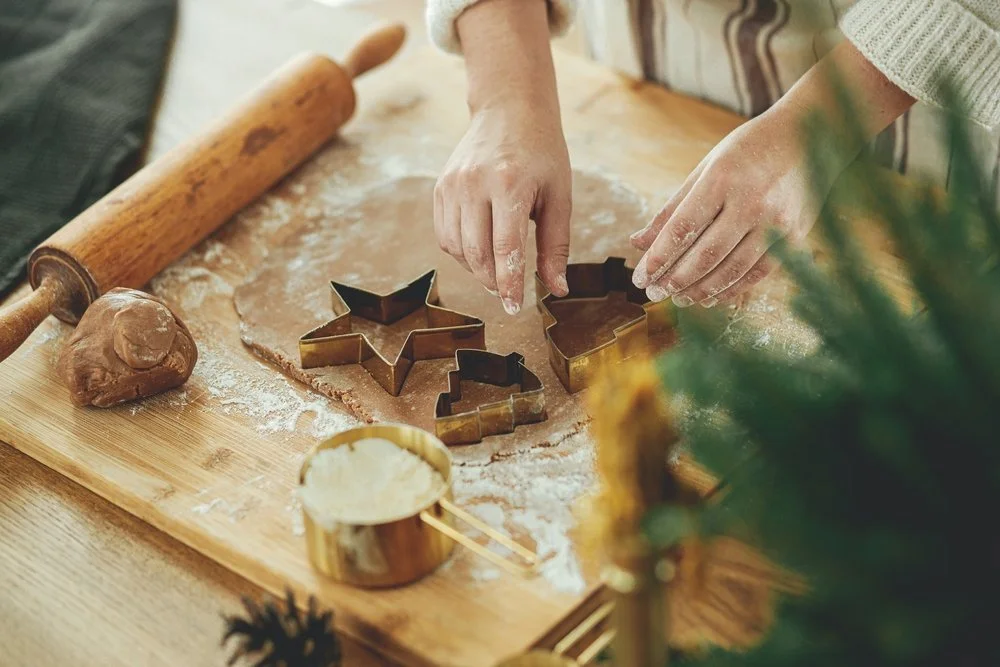OCD & the Holiday Season: How to Prepare, Cope, and Stay Grounded
The holidays are supposed to be “the most wonderful time of the year,” but for people with OCD, this season can feel more like sensory chaos wrapped in family dynamics and sprinkled with unrealistic expectations. Routines get disrupted. Triggers pop out of nowhere. And the pressure to be cheerful can make everything feel heavier.
If your anxiety is already creeping up, you’re not broken or failing, you’re human, heading into a notoriously overwhelming season. With a little preparation and a lot of compassion, you can get through the holidays without letting OCD run the show.
This guide walks you through how to stay grounded, flexible, and connected to what actually matters.
1. Why the Holidays Can Trigger OCD
There’s nothing wrong with you for feeling activated during the holidays. OCD loves:
Disrupted routines
Family dynamics and expectations
Crowded, noisy gatherings
Travel, germs, and contamination concerns
Pressure to be joyful, social, or “on”
Increased intrusive thoughts
Perfectionism around gifts, decorating, hosting, or looking a certain way
It’s a perfect storm for an overstimulated nervous system. Knowing that doesn’t fix everything, but it makes it a lot less personal.
2. Expect Triggers
One of the best ways to reduce anxiety is to stop pretending you won’t feel anxious.
Expect:
intrusive thoughts
urges to ritualize
sensory overwhelm
moments of “I can’t do this”
Expecting discomfort means you don’t interpret it as danger. It becomes weather, not a moral failing.
3. Identify Your Holiday Triggers
Every person’s OCD is a little different. Understanding your own patterns helps you prepare without over-preparing.
Family & Relationship StressComments about weight, parenting, life choices, careers, or relationships. Feeling judged. Feeling guilty. Feeling 12 years old again.
Sensory Overload & StimulationNoise, cooking, travel, bright lights, kids running around, shopping chaos, your stress cup fills fast.
Scrupulosity TriggersReligious or moral themes, rituals, traditions, pressure to be “pure,” “good,” or “spiritually perfect.”
Contamination & Health AnxietyTravel bathrooms, shared food, people touching everything, holiday viruses, crowded airports.
Relationship OCDComparing your relationship to others, worrying you don’t “feel enough,” obsessing over flaws or doubts.
Perfectionism & Performance PressureThe perfect gifts, perfect tree, perfect dinner, perfect family photos. Not required, by the way.
4. Create a Values-Based Holiday Plan
Instead of aiming for zero anxiety, aim for values over avoidance.
Take a moment and ask:
What truly matters to me this season?
What do I want to feel connected to?
What will I care about in a month, or in five years?
Examples:
Connection
Peace
Humor
Rest
Imperfection
Presence
Let your values guide your decisions, not OCD’s bossy demands.
5. Build a Practical Coping Toolkit
This is where things get actionable.
A. Sensory Plan
Noise-canceling headphones
Short breaks outside
A quiet bedroom escape route
Hydration, snacks, and comfortable clothes
You’re not dramatic, you’re regulating your nervous system.
B. Boundary Plan
Short, simple, clean phrases you can use without guilt:
“I’m going to step out for a minute.”
“I’m not discussing that today.”
“Thanks, but I’ve got it covered.”
“I’m all set.”
You don’t owe anyone your full emotional bandwidth.
C. OCD Plan
Before events, remind yourself:
intrusive thoughts will show up
urges to ritualize will show up
anxiety will be loud
I can let these be background noise
I’ll choose flexibility over certainty
Tiny exposures can help, but this isn’t the season to tackle your biggest fears. Stay steady, not heroic.
6. Watch Out for Holiday Compulsions
OCD gets sneaky. Pay attention to these common traps:
Endless reassurance seeking
Replaying conversations for “mistakes”
Over-preparing or over-planning
Avoiding events or people
Rechecking gifts, cards, decorations
Scrutinizing whether you’re having “enough” fun
Fixating on being a perfect host, guest, parent, or partner
Imperfection is allowed. Actually, it’s encouraged.
7. Give Yourself Permission Not to Be ‘Festive’
You don’t owe anyone:
a perfect mood
eternal holiday cheer
high social energy
a spotless home
the world’s best hosting skills
Sometimes your best looks like:
attending for an hour
staying home
sitting quietly
taking sensory breaks
saying “no thank you”
None of this makes you a Grinch. It makes you a person who knows their limits.
8. Plan for After the Event
Your “post-game” matters just as much as the event itself. Try:
A warm shower or soft lighting
Gentle movement
Getting back into your routine
Noticing post-event rumination and refusing to take the bait
A grounding activity (music, a walk, cuddling with a pet)
OCD loves to review the night like it’s evaluating security footage. Let it chatter, you don’t have to answer.
Conclusion
Holiday spikes don’t mean you’re sliding backward. They mean you’re navigating a loud, chaotic season with a sensitive brain doing its best. You can move through the holidays with flexibility, boundaries, and compassion for yourself, not perfection or certainty.
You deserve a holiday season that feels like yours, not OCD’s.
If you need support this season, OCDMN is here.




